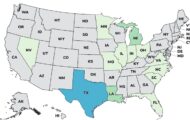On February 8, 2013, Secretary of Agriculture Tom Vilsack said that sequestration will affect the nation's food safety. If Congress fails to act, on March 1, 2013 budget cuts go into effect across the board in the United States. "Across-the-board cuts for virtually every agency, every line item of every agency," will occur, he stated. "The effects will be extraordinary." He continued, "it is likely, if sequester is triggered, that in our food safety area we will have to furlough workers for a period of a couple of weeks. Now you say, well, you know, everybody gets a couple weeks' vacation. The problem is, as soon as you take an inspector off the floor, that plant shuts down, so it's not just the inspectors, it's the hundreds of thousands of people who are in the processing business. … [Read more...]
Former CDC Directors Concerned About Budget Cuts
Six former directors of the Centers for Disease Control and Prevention wrote a letter published in Politico, asking Congress to avoid budget cuts to that agency in the name of public health and safety. William H. Foege, Julie Gerberdine, Jeffrey P. Koplan, James O. Mason, William L. Roper, and David Satcher all signed the letter. They state that the work of the CDC is "a matter of life and death." That government agency supports emergency responses to hurricanes, investigates foodborne illness outbreaks, problems with medical products, and fights chronic illness in this country. They point to the current meningitis outbreak linked to steroids made at the New England Compounding Center in Massachusetts as a prime example of necessary government surveillance. So far, 510 people have been … [Read more...]
U.S. PIRG: American Lives at Risk from Unsafe Foods
The U.S. Public Interest Research Group, which is the federation of state PIRGs, has released a new report stating that food recalls are on the rise and our food safety systems are broken. Contaminated food makes 48,000,000 Americans sick every year, hospitalizes 128,000 and kills 3,000. Those illnesses rack up more than $77,000,000,000 in economic costs. We are deliberately using numbers rather than writing "million" and "billion" to accentuate the seriousness of this situation. Nasima Hossain, Public Health Advocate for U.S. PIRG said, "every year we see hundreds of food products recalled, because they have caused sickness and in some cases death. 2012 has already seen nearly twice as many illnesses due to recalls as 2011, with high-profile recalls of cantaloupes and hundreds of … [Read more...]
OMB Releases Report on Effects of Sequestration
On Friday September 14, 2012, the White House Office of Budget and Management (OMB) released a report on the possible effects of sequestration on food safety, Medicare, FBI, FAA, and education. Sequestration is the across-the-board cuts that will kick in if Congress does not pass a deficit reduction bill by early January 2013. The cuts are part of the Budget Control Act of 2011 that was signed into law after the debt ceiling crisis in August 2011. The White House states that "the sequestration itself was never intended to be implemented." It was supposed to be a way to prod Congress into action. While there is still time for Congress to put a plan in place, House Republicans announced last week that the House will be in recess until November 13, 2012. The report states that, "no … [Read more...]
Alliance for Stronger FDA Worries about Sequestration Budget Cuts
The Alliance for a Stronger FDA has released a policy update regarding the Food Safety Modernization Act and the possibility of budget cuts implemented through sequestration. Congress returns next week, which gives them only 10 working days to approve a fiscal year 2013 Continuing Resolution to fund government programs such as the FDA and USDA before appropriations expire on October 1, 2012. Then they'll recess until after the election and come back at the end of November for another session. That would give them only four weeks to avoid budget sequestration, which is across-the-board cuts of about 8%. Those cuts were part of the contentious Budget Control Act of 2011 that passed over partisan wrangling about the debt ceiling. If the cuts occur, the FDA will lose $200 million from its … [Read more...]
Consumers Concerned About Drought Causing Higher Food Prices
The U.S. Agriculture Department has forecasted that food prices are going to rise next year because of the widespread summer drought. This summer's drought has been categorizes as severe, and is expected to destroy or damage a large portion of the corn crop throughout the country. The government said that retail price increases will begin this fall. Prices are expected to rise on beef, pork, poultry, and dairy. Drought conditions usually lead to herd culling because feed costs rise. The prices of packaged and processed foods will also increase, but this rise should take 10 to 12 months to move to retail pricing. If the farm price of corn rises by 50 percent, then retail food prices as measured by the Consumer Price Index will increase up to 1 percent. Last week, Agriculture Secretary … [Read more...]
Microbiological Data Program Gets a Reprieve
The Microbiological Data Program (MDP), the country's only program that regularly tests produce for deadly pathogens, has gotten a reprieve. The program, part of the USDA, screens high-risk produce for pathogens such as E. coli, Listeria, and Salmonella. This last week, press coverage, including a letter from Congresswomen Rosa DeLaura (D-CT), has focused attention on the small program. Michael T. Jarvis, Director of Public Affairs for the U.S. Agricultural Marketing Service, told Food Poisoning Bulletin that the USDA has issued this statement: "While the Microbiological Data Program does not align with USDA's core mission, the department will continue its work with state partners using existing agreements to conduct sampling and testing through this program through the end of the … [Read more...]
Rep. DeLauro Urges Funding for Microbiological Data Program
Congresswoman Rosa DeLauro (D-CT) urged the Obama Administration to fund the Microbiological Data Program (MDP). This small program, which costs only $4.3 million dollars a year, checks samples of produce in the market for pathological bacteria. The MDP is not funded for fiscal year 2013 which begins October 1, 2012. It is the only federal program that is dedicated to researching bacterial contamination of produce. In contrast, food poisoning costs the United States $78 billion every year in medical costs, lost income, and lost productivity. And in 2011, one-third of foodborne illness outbreaks were linked to fresh produce. The most notable was the Jensen Farms cantaloupe Listeria outbreak, which sickened at least 146 people in 28 states and killed at least 30. Her letter states, in … [Read more...]
White House Threatens Veto of House Bill Cutting FDA Funding
The White House Office of Management and Budget issued a Statement of Administration Policy on June 24, 2012 that objects to H.R. 5973. The Obama administration is threatening a veto of the bill if it is sent to the White House. The bill will set funding for Agriculture, Rural Development, Food and Drug Administration, and Related Agencies programs for the fiscal year ending September 30, 2013. According to the statement, the bill "imposes harmful cuts in rural economic development, renewable energy development, nutrition programs, food safety, and international food aid. Investing in these areas is critical to the Nation's economic growth, security, and global competitiveness. The Administration also strongly objects to the inclusion of any ideological and political provisions that … [Read more...]
Funding Cuts Hurt Local Public Health Departments
A survey conducted by the National Association of County and City Health Officials has found that local public health departments in this country have lost almost 40,000 employees to budget constraints since the recession began in 2008. In 2011, 57% of all health departments reduced or eliminated services in at least one program area. These funding cuts hurt local public health departments. According to the survey, emergency preparedness services were cut by 23 to 24%, environmental health services were cut by 17 to 20%, food safety programs were cut by 10 to 12%, and epidemiology and surveillance services were cut by 9 to 10%. Almost two-thirds of the United States population lives in an area that reported reductions to at least one program area. Thirty-nine percent of the U.S. … [Read more...]











